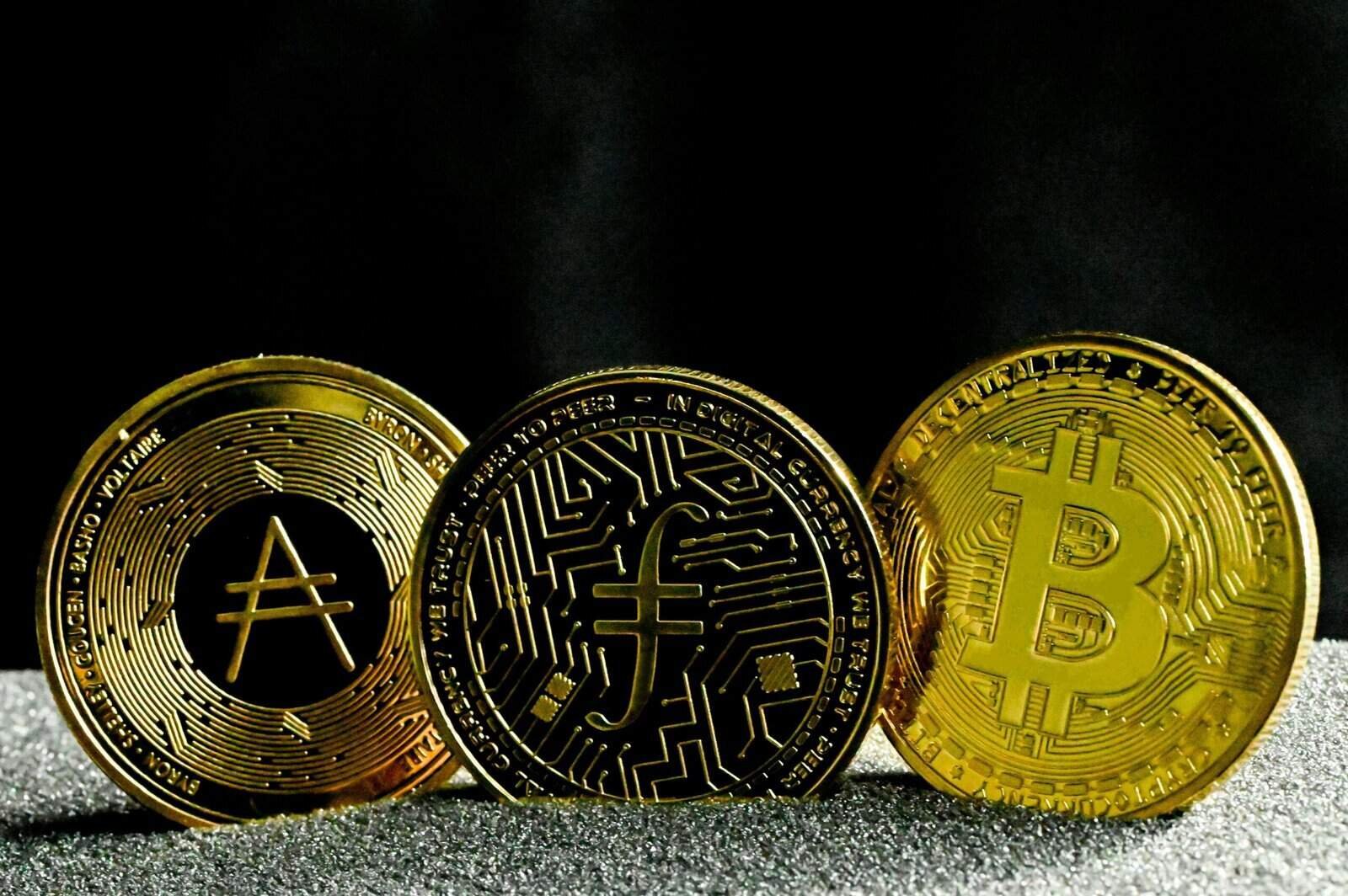How ready are you to navigate the patchwork of crypto exchange regulations around the world in 2025?
You’ll find that regulatory approaches have continued to diverge sharply between jurisdictions, shaped by differing policy priorities: consumer protection, anti-money laundering, financial stability, innovation, taxation, and geopolitical risk. This article walks you through the key regulatory dimensions that vary by country, gives country-by-country snapshots, and offers practical guidance so you can make informed choices about which exchanges to use, how to manage risk, and what to expect next.

Overview: Global regulatory trends in 2025
Regulation of crypto exchanges matured unevenly by 2025. Many jurisdictions moved from experimental, ad hoc approaches to more formal licensing and supervisory regimes, while others preserved bans or heavy restrictions. You’ll see a mix of strong AML/KYC regimes, specific stablecoin rules, securities-law scrutiny when tokens resemble investment contracts, and new tax and reporting requirements — all of which affect how exchanges operate and how you interact with them.
Regulators have become more coordinated on some fronts (e.g., anti-money-laundering standards and cross-border information sharing), but still vary widely on classification of tokens and permitted activities, especially around decentralized finance (DeFi), margin trading, and tokenized securities.
Key regulatory dimensions that differ across countries
Understanding the regulatory dimensions will help you compare jurisdictions and exchanges more systematically.
Licensing and registration
Many countries require crypto exchanges to obtain licenses or register with a financial authority. Licensing standards range from light-touch registration to comprehensive prudential supervision. You’ll encounter different licensing processes, fees, capital requirements, and ongoing reporting expectations depending on where an exchange is headquartered or operates.
AML/KYC and transaction monitoring
Anti-money-laundering (AML) and know-your-customer (KYC) rules are among the strictest and most consistently enforced requirements globally. You’ll typically need to pass ID verification, ongoing monitoring, and suspicious activity reporting. Some jurisdictions impose higher transaction thresholds for reporting or require real-name bank links for fiat on/off ramps.
Token classification (securities vs. commodities vs. utility)
A central regulatory divergence is how tokens are classified. If a token is treated as a security, exchanges face securities laws that impose prospectus, segregation, disclosure, and licensing obligations. Some countries apply securities tests narrowly, while others take a broader view and classify many tokens as securities. This affects which tokens an exchange can list and how they must operate.
Custody and segregation rules
Regulators differ on whether exchanges can commingle customer assets with their own, how custodial responsibilities are defined, and what safeguards (insurance, reserves, audits) are required. You’ll find strict custody regimes in some jurisdictions that mandate segregated accounts and regular attestations, while others are more permissive.
Stablecoin and payment-token rules
Stablecoins attracted focused regulatory attention. Some countries introduced bespoke rules for issuers and intermediaries, covering reserves, redemption rights, and operational resiliency. You’ll need to consider whether a jurisdiction permits privately issued stablecoins and what safeguards exchanges must implement.
Fiat on/off ramps and banking relationships
The ability to deposit and withdraw fiat currency is determined by local banking regulations and whether banks are willing to service crypto firms. You’ll see jurisdictions where fiat ramps are easy and regulated, and others where banks avoid crypto clients, pushing users toward peer-to-peer or crypto-only networks.
Consumer protections and dispute resolution
Consumer protection varies: some countries require disclosures, risk warnings, insurance for custodial loss, complaint-handling mechanisms, and mandatory cooling-off periods for certain products. You’ll want to check what recourse you’ll have if something goes wrong.
Tax reporting and information sharing
By 2025 many countries expanded tax reporting requirements for exchanges, requiring them to share user transaction data. This affects your tax compliance and privacy expectations. In some places, exchanges are required to provide annual statements to both you and tax authorities.
DeFi, DEXs, and smart contract liability
Regulators are increasingly trying to address decentralized exchanges (DEXs) and DeFi protocols. Some jurisdictions attempt to regulate platforms offering order-book-like services or custody through smart contracts, while others focus on centralized intermediaries that provide user-friendly access. Where you live will influence which DeFi services are readily accessible and how liability is allocated.
Capital controls and sanctions
In jurisdictions with capital controls or heavy sanction regimes, crypto activity may be restricted or monitored more vigorously. If you transact across borders, you need to be aware of local foreign-exchange controls and international sanctions enforcement that affect exchanges’ willingness to serve you.
Global snapshot table — quick comparison
Below is a compact comparison of regulatory characteristics across representative jurisdictions. This will help you spot patterns quickly. (Legend: License = licensing/registration required; AML = AML/KYC strictness; Token treatment = common approach toward token classification; Fiat ramps = ease of fiat on/off ramps)
| Jurisdiction | License/Reg. | AML/KYC | Token treatment | Fiat ramps | Stablecoin rules | Enforcement intensity |
|---|---|---|---|---|---|---|
| United States | Yes (federal + state) | High | Many tokens treated as securities by SEC; commodities by CFTC | Varies by bank relationships | Under discussion; banking + payment focus | High, fragmented |
| European Union (MiCA + national) | Yes (MiCA framework) | High | MiCA distinguishes asset-referenced & e-money tokens; securities under national law | Generally accessible | Comprehensive under MiCA for issuers | High |
| United Kingdom | Yes (FCA reg. + AML) | High | Mixed; securities regulated by FCA | Good for regulated firms | Proposals for stablecoin regime | High |
| Germany/Switzerland | Yes | High | Clear token classifications; favorable frameworks | Strong banking support in some hubs | Specific rules/oversight | High |
| Japan | Yes (FSA) | High | Strict classification; many consumer protections | Good | Strong oversight of issuers | High |
| Singapore | Yes (PS Act) | High | Generally pragmatic; securities treated under SFA | Good | Clear guidance; MAS active | High |
| South Korea | Yes | High | Stringent rules; some tokens restricted | Good | Regulated | High |
| China | Banned (trading & mining) | N/A domestic legal activity | No private crypto trading | No formal fiat ramps | Ban on private stablecoins | Very high enforcement |
| India | Evolving; taxation present | Medium-High | Unclear classification; policy evolving | Varies | Proposals under discussion | Medium-High |
| UAE (ADGM/DFSA) | Yes (freezones) | High | Pro-innovation; regulated | Good | Dedicated frameworks | Medium-High |
| Hong Kong | Licensing implemented | High | Licensing for platforms dealing with tokens | Improving | Roadmap for stablecoins | High |
| Australia | Yes (AUSTRAC + ASIC oversight) | High | Regulated; securities law applies when appropriate | Good | Guidance and partially regulated | High |
| Brazil | Evolving | Medium-High | CVM/Central Bank enforcement | Improving | Regulatory movements | Medium |
This table is a high-level guide; you should check specific legal texts and regulator notices for granular details.
Country-by-country snapshots
Below you’ll find concise yet detailed summaries for key jurisdictions so you can compare how regulations will affect your choices in 2025.
United States
Regulatory approach: Fragmented federal-state landscape. You’ll face overlapping jurisdiction from the SEC (securities enforcement), the CFTC (derivatives & commodities), FinCEN (AML), OCC/state banking regulators, and state money-transmitter regimes (e.g., New York’s BitLicense). Many tokens have been scrutinized as securities under SEC enforcement actions, altering how exchanges list them.
Practical implications for you: Expect rigorous KYC, potential limits on token listings (U.S.-facing customers may not have access to certain tokens), strict AML reporting, and often slower fiat on/off ramps due to bank caution. Exchanges operating in the U.S. must navigate complex requirements; non-U.S. exchanges may block U.S. residents to avoid enforcement.
Stablecoins & payments: Stablecoin regulation remains a focal point, with lawmakers and agencies considering rules addressing reserve requirements, transparency, and the involvement of banks. This affects availability and regulatory certainty for USD-pegged tokens.
Enforcement and trends: Enforcement actions are frequent and can target both exchanges and token projects. You’ll want to watch for any federal legislation that might centralize rules (there were repeated legislative proposals through 2024).
European Union (MiCA & national rules)
Regulatory approach: The Markets in Crypto-Assets Regulation (MiCA) created a unified EU framework for many crypto-assets, especially stablecoins and service providers, while securities and tokenized financial instruments remain under existing financial services rules. Member states implement MiCA and still exercise national supervision on some matters.
Practical implications for you: You’ll benefit from clearer rules for licensed EU exchanges and more consistent consumer protections across the bloc. Expect standardized disclosure, supervision of stablecoin issuers (asset-referenced tokens and e-money tokens), and requirements for market abuse prevention. Fiat ramps are generally well-supported across the region.
Stablecoins: MiCA introduced issuer obligations for certain stablecoins, which increases trustworthiness of EU-compliant stablecoins and impacts listing decisions by exchanges.
Enforcement and trends: National regulators remain active, and you might see varying interpretation and enforcement intensity across member states.
United Kingdom
Regulatory approach: Post-Brexit, the UK built on strong AML/registration requirements and is increasingly framing crypto under the FCA and HM Treasury’s remit. The UK focuses on consumer protection and market integrity, with proposed frameworks for stablecoins and tokenized financial markets.
Practical implications for you: Expect strict AML/KYC checks, limited retail access to high-risk derivatives (retail bans remain on some products), and clearer rules for firms that want to offer token custody. The FCA’s register of crypto businesses is a key indicator of a firm’s ability to operate legally.
Stablecoins & payments: The UK has made progress on a stablecoin regulatory regime to support payment use cases, which makes certain issuers more credible.
Enforcement and trends: You’ll see active supervision and enforcement for marketing and custody failures, so reputable exchanges emphasize compliance.
Japan
Regulatory approach: Japan’s Financial Services Agency (FSA) imposes strict licensing and operational requirements for exchanges, including asset segregation, security standards, and AML obligations. Japan treats crypto exchanges as regulated entities with high consumer protection standards.
Practical implications for you: Expect rigorous identity verification and well-defined legal recourse if a regulated exchange fails. Japan’s legal clarity on custody and listing standards tends to reduce counterparty risk, which is attractive if you prioritize security.
Stablecoins: Japan monitors stablecoin issuers closely; the regulatory approach aims to protect consumers and monetary stability.
Enforcement and trends: The FSA carries out inspections and takes swift enforcement actions when standards are not met, and you’ll find that licensed exchanges emphasize transparency and audits.
Singapore
Regulatory approach: Singapore’s Payment Services Act (PSA) regulates providers of digital payment token services and creates a licensing framework under MAS. Singapore aims to be innovation-friendly while maintaining high AML standards and strong conduct supervision.
Practical implications for you: Singapore-licensed exchanges generally offer robust compliance, local bank support, and clear rules for stablecoins and custody. You’ll find a pragmatic environment where exchanges can innovate under regulatory oversight.
Stablecoins & payments: MAS has issued guidance on stablecoins and interplays with payment systems, fostering a stable regulatory environment for reputable issuers.
Enforcement and trends: MAS actively supervises licensees and has revoked licenses for serious compliance failures, so you’ll see a market of compliant, trustworthy providers.
South Korea
Regulatory approach: South Korea enforces high AML/KYC standards, requires real-name bank accounts for fiat deposits, and maintains strong oversight of exchanges through the Financial Services Commission and other authorities.
Practical implications for you: Expect strict identity checks, transparency requirements, and limited anonymity. Some tokens and services have been restricted or banned when considered high-risk. The real-name system makes fiat on/off ramps efficient but tightly regulated.
Stablecoins: Regulated within the payment and financial supervision frameworks; issuers and intermediaries face scrutiny.
Enforcement and trends: Regulators have shown readiness to act on violations and have sought to close regulatory gaps around intermediaries and token listings.
China
Regulatory approach: China banned crypto trading and decentralized token offerings for domestic participants, prohibited crypto mining, and enacted strict measures to block related financial services. Enforcement is severe and ongoing.
Practical implications for you: If you are in China or a Chinese national, access to domestic exchanges is curtailed; international exchanges often block Chinese IPs and customers to comply with local restrictions. You’ll face legal and enforcement risk if attempting to use crypto services in non-compliant ways.
Stablecoins & CBDC: China focuses heavily on its central bank digital currency (CBDC) initiatives (the digital yuan) and restricts private stablecoins.
Enforcement and trends: Very high enforcement intensity ensures sustained limitations on private crypto activity.
India
Regulatory approach: India’s approach has been evolving. By 2024 tax measures (including TDS on transactions and capital gains tax) were implemented, and policymakers debated licensing and consumer-protection regimes. The classification of tokens remained partly unclear, and regulators considered broader frameworks.
Practical implications for you: You must account for tax reporting and withholding rules. Exchanges often implement KYC and GST/sales reporting, and some international exchanges may voluntarily block Indian users to avoid uncertainty. Expect regulatory clarification and potential licensing requirements.
Stablecoins & CBDC: India’s CBDC focus grew, and regulators scrutinized stablecoins for monetary implications; private stablecoins face regulatory risks.
Enforcement and trends: Enforcement is patchy, but tax enforcement and AML upgrades have increased.
Brazil
Regulatory approach: Brazil’s regulators (Central Bank and securities watchdog CVM) have ramped up supervisory attention and proposed rules covering custody, AML, and token classification. New laws and rulemaking efforts in the early 2020s created a clearer path toward regulated exchanges.
Practical implications for you: You’ll experience improving domestic fiat infrastructure and a growing roster of regulated local exchanges. Taxation and reporting are being enforced more strictly, and exchanges are required to observe AML rules.
Stablecoins & payments: The Central Bank’s interest in digital payments has prompted clearer signals regarding stablecoins used for payments and reserves.
Enforcement and trends: Regulatory clarity improved market participation and investor protection, though you should monitor evolving rulemaking.
United Arab Emirates (ADGM, DFSA, Dubai)
Regulatory approach: The UAE (particularly Abu Dhabi Global Market and Dubai) created crypto-friendly licensing regimes with clear rules for exchanges, custodians, and token offerings. These freezones offer well-defined regulatory frameworks and licensing pathways.
Practical implications for you: If you use an exchange licensed in ADGM or DFSA, you’ll benefit from a well-structured legal environment, international banking access, and pragmatic oversight. However, not every licensee is identical; check the scope of each license.
Stablecoins & payments: The UAE has welcomed regulated stablecoin projects while emphasizing compliance with AML and payments laws.
Enforcement and trends: The UAE aims to attract crypto business while maintaining strong compliance standards, making it a hub for regulated service providers.
Hong Kong
Regulatory approach: Hong Kong implemented a licensing regime for virtual asset service providers (VASPs) and tightened AML requirements. The Securities and Futures Commission (SFC) took an active role in supervising certain crypto activities.
Practical implications for you: You’ll find increasing numbers of licensed platforms, clearer rules for token listing, and better access to fiat through banks. Hong Kong’s regulatory environment became more aligned with international standards.
Stablecoins & payments: Authorities issued guidance and a roadmap for dealing with stablecoins and tokenized products.
Enforcement and trends: Expect robust oversight, particularly for firms targeting retail investors.
Australia
Regulatory approach: Australia continues to regulate exchanges under AUSTRAC (AML) and ASIC (market conduct) with clear registration requirements and consumer protections. Exchanges must comply with reporting and operational standards.
Practical implications for you: Exchanges operating under Australian law typically offer solid AML compliance and bank relationships. You’ll find consumer safeguards and tax reporting obligations that exchanges are required to support.
Stablecoins & payments: Guidance exists and regulatory attention continues on stablecoins’ interaction with payment systems.
Enforcement and trends: Authorities actively enforce AML and consumer protection rules and require enhanced disclosure.
Switzerland
Regulatory approach: Switzerland has established clear token classifications and a favorable but regulated environment (FINMA) for token offerings and exchanges, focusing on anti-money laundering and proper custody arrangements. The Swiss approach supports tokenization of assets under a regulated framework.
Practical implications for you: If you prioritize legal clarity and strong custody frameworks, Swiss-regulated platforms are attractive. You’ll see robust AML/KYC and transparent operational requirements.
Stablecoins & payments: Switzerland has welcomed tokenized assets and payment innovations under supervisory frameworks.
Enforcement and trends: Regulators emphasize transparency and prudential standards without stifling innovation.
Nigeria
Regulatory approach: After earlier central bank guidance constrained banking services for crypto, Nigeria has seen pragmatic market adaptations with strong peer-to-peer activity and local exchanges. Authorities focus on AML and tax but have not fully aligned on a licensing regime by early 2024.
Practical implications for you: You’ll find vibrant adoption and P2P options, but fiat on/off ramps can fluctuate with bank policies. Regulatory uncertainty creates user risks around banking access and enforcement.
Stablecoins & payments: Interest in stablecoins is high, but regulatory guards and macro concerns affect issuance and usage.
Enforcement and trends: Expect periodic policy changes; monitor local guidance for banking relationships.

How these differences affect you — practical considerations
Regulatory variation shapes your choices in multiple ways. Focus on these practical points when selecting an exchange or structuring your crypto activity.
- KYC and privacy: Where AML is strict, you’ll provide more personal data and face identity verification that can be time-consuming. Consider how this aligns with your privacy preferences.
- Access to tokens: If you’re interested in newer or less regulated tokens, note that U.S. and some EU rules may prevent certain listings. Non-U.S. exchanges may list a broader set of tokens but might restrict access to U.S. or EU residents.
- Fiat on/off ramps: If you need smooth fiat transfers, prioritize exchanges with strong banking relationships in your jurisdiction; otherwise you may rely on P2P or stablecoin bridges.
- Custody risk: Check custody arrangements and whether the exchange segregates funds or holds them in pooled accounts. Insurance, audits, and cold-storage practices matter.
- Tax and reporting: Exchanges increasingly share data with tax authorities. You should maintain records and prepare for reporting obligations.
- DeFi access: The legal status of DeFi and DEXs varies. Where authorities clamp down, access may be restricted or carry additional risk.
- Geopolitical and sanctions risk: If you transact across borders, verify that the exchange screens for sanctions and applies capital-controls rules, as non-compliant activity raises legal risk.
- Recourse and complaint mechanisms: Prefer exchanges that operate under a regulator with clear complaint processes and dispute resolution.
Checklist: How to choose an exchange in 2025
Use this checklist to evaluate exchanges before you open an account.
- Licensing: Is the exchange licensed/registered in your jurisdiction or a reputable one? Check public registers.
- AML/KYC: Are KYC processes robust and GDPR/privacy-compliant for your needs?
- Supported tokens: Does the exchange list the tokens you want, and are those listings consistent with local law?
- Fiat support: Which fiat currencies and bank partners are available for deposits and withdrawals?
- Custody & security: Are assets custodied in segregated accounts or cold storage? Look for third-party audits and insurance coverage.
- Fees & liquidity: Compare trading, deposit/withdrawal, and spread costs; ensure sufficient liquidity for your trades.
- Consumer protections: Does the exchange offer fund protections, clear dispute resolution, and transparent terms?
- Tax reporting: Does the platform provide transaction histories and tax statements?
- Regulatory history: Has the exchange faced enforcement actions? How did it respond?
- Jurisdictional restrictions: Confirm whether residents of your country are served or blocked.

What to watch for next (beyond 2025)
Even after 2025, some regulatory themes will continue to develop and should shape your planning:
- Harmonization vs fragmentation: Expect more regional harmonization (e.g., in the EU), but persistent fragmentation in countries with distinct monetary objectives or political priorities.
- Stablecoin standardization: More jurisdictions may require reserve transparency, custodian rules, or sovereign backing for widely used stablecoins.
- DeFi regulatory attempts: Policymakers will try to adapt traditional rules to decentralized architectures; clarity will emerge slowly and unevenly.
- Cross-border cooperation: Tax transparency and AML information exchange will grow, increasing compliance burdens for platforms and users.
- Securities enforcement: Regulators may expand or refine tests for tokens deemed securities; legal precedents will clarify boundaries.
- Central bank responses: Growing CBDC rollouts could change payment rails and competition dynamics with private stablecoins.
Final thoughts
You’ll find that the regulatory landscape for crypto exchanges in 2025 is more mature but still varied. Some jurisdictions offer predictable, license-driven environments with strong consumer protections and reliable fiat access, while others restrict crypto activity or leave significant uncertainty. Your choice of exchange should weigh licensing, custody practices, token availability, fiat access, privacy, tax reporting, and the enforcement climate.
If you’re unsure where to start, prioritize exchanges licensed in reputable jurisdictions with transparent custody practices and robust AML/KYC. Keep informed about rule changes in your jurisdiction and maintain records for tax and compliance. Regulators will keep refining the rules, so staying updated is one of the best protections you can have.
If you want, I can:
- Compare two or three specific exchanges you’re considering and highlight regulatory implications for each; or
- Produce a country-specific checklist tailored to where you live so you can pick a compliant platform. Which would help you most?

